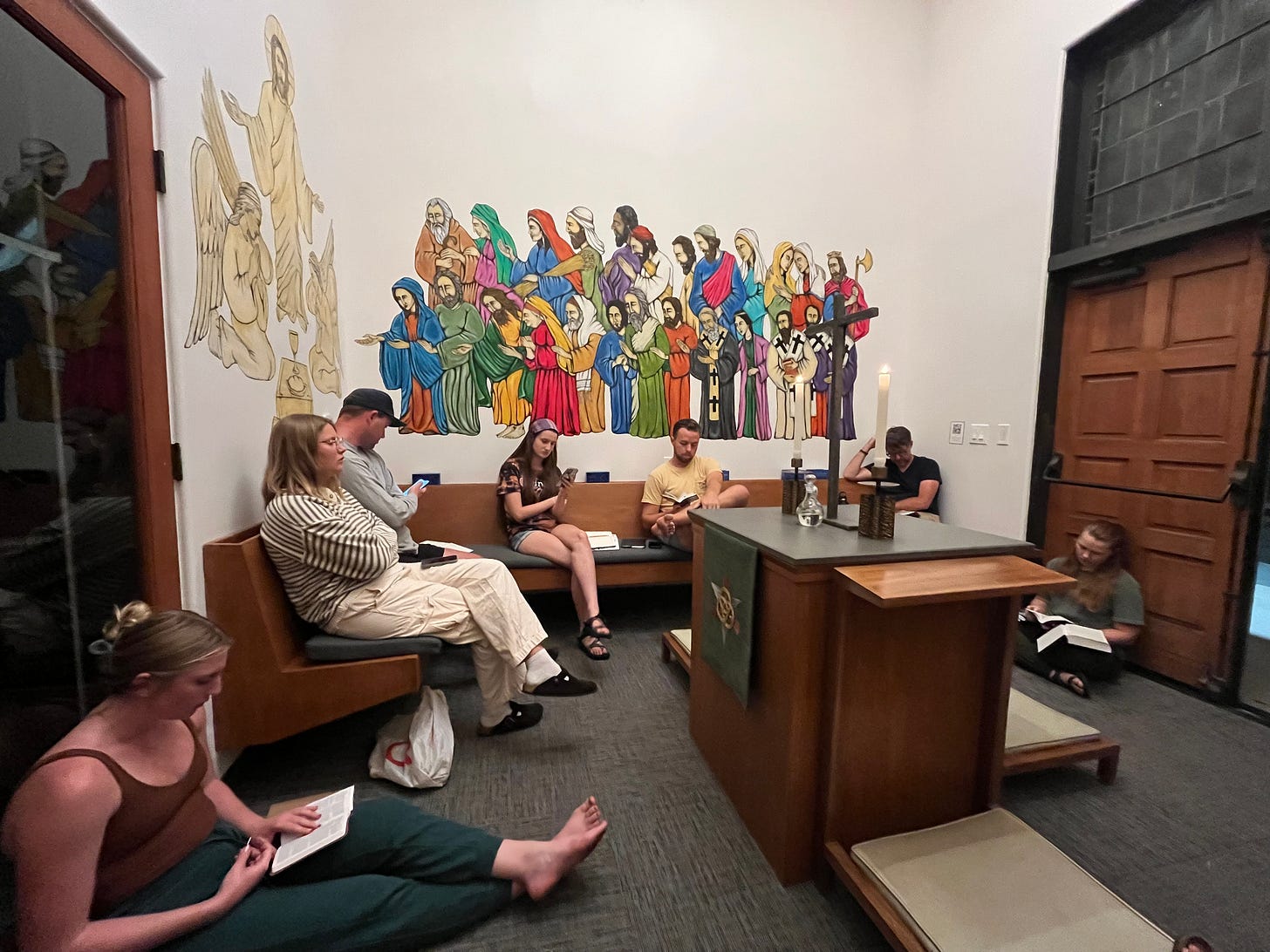There is a very healthy conversation happening around Rule of Life. At Trinity, we have a Rule of Life, but we can’t imagine having it privately. I have daily time in my prayer chair with Daily Text and journal, but when I think of prayer, I think of evening and morning with my sisters and brothers, “O Lord, open OUR lips. And OUR mouths will declare your praise.” When I think of grace, the cross, reconciliation, and hospitality, I think of it in practice, in community. I reviewed our Rule of Life, and there is not one drop of privatized spirituality. Every “way” and “commitment” begins with a “we” or an “our.” We are sharing life together—the common life.
Lately, we have been considering, not only the importance of formation, but the necessity of counter-formation. Vive la résistance!
Toward the beginning of John Mark Comer’s Live No Lies, he summarizes, “As followers of Jesus, we are at war with the world, the flesh, and the devil, and the three enemies’ stratagem is as follows:
Deceptive ideas… (The DEVIL) >
that play to disordered desires… (The FLESH) >
that are normalized in a sinful society. (The WORLD).”
Explore that for a minute. Think of something concrete, a deceptive idea, that plays to a disordered desire, that is normalized in a sinful society.
If you have a hard time thinking of your own deceptive idea, try this one and fill in the other blanks.
DECEPTIVE IDEA: “God is watching us from a distance.” —Bette Midler
DISORDERED DESIRE:
NORMALIZED IN A SINFUL SOCIETY:
Here is a start for how Trinity’s Rule of Life (our 7 ways and commitments) are ways to resist the flesh, the world, and the devil.
Way of Grace is a way of resistance to the culture of redemption-less cancelation, ghosting, blocking, no-contact, guilt, and shame. It also resists the idea that every arena of life should be a meritocracy, where the valuable are valued and the vulnerable are ignored.
Way of the Cross is a way of resistance to the culture of grasping, depressing, and self-salvation tactics.
Way of Word and Prayer is a way of resistance to a culture that is full of words and conversations that are more marked by human promotion and propaganda instead of Divine promise. Other words destroy or set on fire, God’s word creates and gives life.
Commitment to Reconciliation is a way of resistance to a culture that “gets over it” through coping mechanisms, blame, self-justification, weaponized apology, and outrage.
Commitment to Rest and Work is a way of resistance to a culture that values production over all things (workaholism) that swings to amusement as escape (sloth).
Commitment to Welcome is a way of resistance to a culture that is increasingly tribal, xenophobic, and polarized, and recognizes that the gospel comes with a house key and a “Welcome Home!”
Commitment to Life Together is a way of resistance to a culture that is increasingly lonely, individualistic, and private, while simultaneously dehumanized and impersonal.
Take a few of these examples and reflect together on them.
—What does this mean? How do you see the culture forming us poorly and how does the way of the Kingdom counter-form us? Give some examples.
—Why does it feel like these ways and commitments are going against the flow?
—How is a rule-of-life community helpful in these ways of resistance?
—Are any particularly difficult for you today? Would you like prayer?




